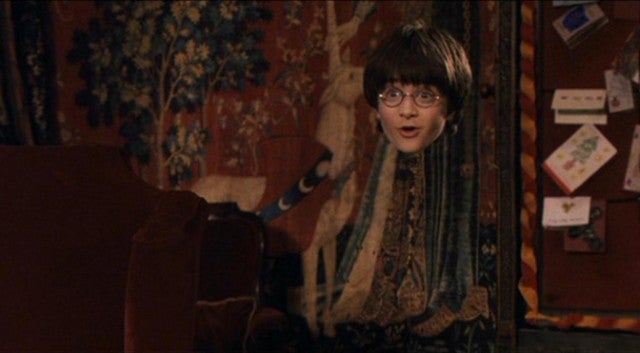Errors & Omissions: Evidently, the future is not ours to see – but can we spell it?
A pedantic review of the past week’s print editions of The Independent


A picture caption on Monday told us that research is “unlikely to produce a Harry Potter Invisibility Cloak in the forseeable future”. This is a shame, as was our spelling of “foreseeable”. The difference between fore-, meaning in front, and for-, meaning without, is one that often trips us up.
• “Cut out the middle man and bring science straight to the masses” was the headline on our interview with Annette Thomas on Monday. She is the chief executive of Macmillan Science and Education, publisher of Nature, and advocates open access rather than the traditional system of peer review in science publishing. “Cut out the middle man” would have been sexist, and a cliché, if she had been a man. As she isn’t, it was also silly.
• “It’s very rare that the British Fashion Awards act as a form of public rehabilitation,” we reported on Tuesday. The sentence went on: “... or perhaps nods towards greatness to come.” That should have been “nod”, as we were still talking about the awards, plural. We didn’t need the “perhaps” (or the “very”): extra words that clutter the sentence, making it harder to follow and making mistakes more likely, making it harder to follow still.
Worse, we omitted to say what John Galliano had done, from which he needed to be habilitated. I had a dim memory, but had to look it up. He was sacked by Dior after drunken racist rants, which his lawyer blamed on “work-related stress and multiple addictions”. Our readers should have been reminded.
• “Sardinia fights to stop $1m Bronze Age icon going under the hammer”: this headline on Wednesday was about a “4,500‑year-old pagan idol”, as its first paragraph informed us. (It would be pagan – “of beliefs other than those of the main world religions” – if it were 4,500 years old.)
It was unclear whether we were using “icon” in the headline in its literal or its metaphorical sense. An “idol” is a figure of a god (a statuette of a mother goddess, as we could see from the picture). An “icon” is a devotional painting of a holy person, typically on wood and used ceremonially in Eastern churches. So the literal sense was wrong, and the metaphorical sense is not just on the Banned List, but in this case was simply confusing.
• We mixed metaphors in our report of Wednesday’s match between Arsenal and Southampton: “As the hour approached the stalemate asked something of both managers: to stick or twist.”
A football game turned into chess and ended as pontoon in a single sentence. This is not bad in itself, but the stalemate is wrong. It does not mean deadlock: it is the end of the game, a draw that usually comes about by mistake, when the player in a strong position fails to allow the weaker player any legal moves. Nothing, therefore, follows a stalemate, except in journalese, in which it is often “broken”.
Guy Keleny is away
Join our commenting forum
Join thought-provoking conversations, follow other Independent readers and see their replies
Comments